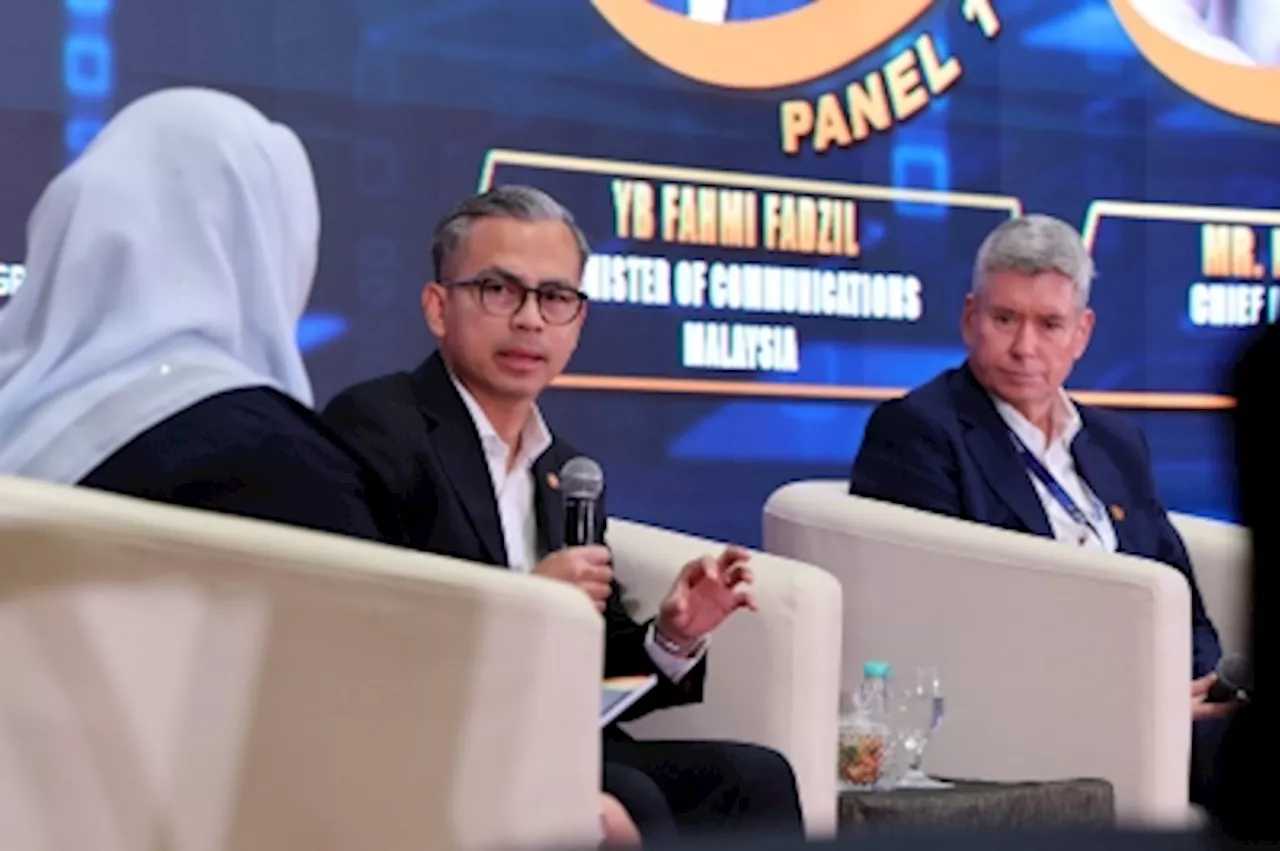Pakistan passed legislation criminalizing online disinformation, drawing criticism from journalists who accuse the government of stifling dissent. The law, approved with little warning, carries a maximum sentence of three years in prison for those who spread false information. Journalists argue the government seeks to control online platforms as it already does traditional media, and that the law will be used to suppress criticism. They point to increasing state censorship and the crackdown on Imran Khan’s supporters as evidence.
Pakistan criminalised online disinformation on Tuesday, passing legislation dictating punishments of up to three years in jail and prompting journalist protests accusing the government of quashing dissent. The law targets anyone who “intentionally disseminates” information online that they have “reason to believe to be false or fake and likely to cause or create a sense of fear, panic or disorder or unrest”.
It was rushed through the National Assembly with little warning last week before being approved by the Senate on Tuesday as reporters walked out of the gallery in protest. Pakistan media workers have reported rising state censorship in recent years and the public has shifted to consuming much of its news from social media. “The mainstream media is already compromised. That’s the reason why many journalists turned to YouTube,” YouTube journalist Asad Ali Toor told AFP in the capital Islamabad, where more than 150 journalists rallied against the bill. “The state wants the same control of social media as it is controlling the mainstream media,” Toor said. Around 50 journalists also protested the bill outside the press club of the southern city of Karachi on Tuesday afternoon.Analysts say the government is struggling with legitimacy after elections last February plagued by rigging allegations, and with popular former prime minister Imran Khan jailed on corruption charges he insists are politically motivated. Khan’s supporters and senior lieutenants in his Pakistan Tehreek-e-Insaf (PTI) party have faced a severe crackdown, with thousands rounded up and Khan’s name censored from television. Much of PTI’s campaigning has moved online where the party’s young tech-savvy base has continually called for protests. PTI senator Syed Shibli Faraz called the new law “highly undemocratic” and said it would “fuel the political victimisation” of their supporters. Facebook, TikTok and WhatsApp are among the most popular social media platforms in Pakistan, where low digital literacy fuels the spread of false information, conspiracy theories and deepfakes. Some YouTube journalists blur the line between reporting and heavily partisan commentary tailored to their millions of followers. Many lack proper fact-checking skills and contribute to spreading false information, sometimes garnering thousands of views. “I am sure that in the future, the anarchy caused in society through social media will be controlled,” government minister Tanveer Hussain said as the bill was approved.The new law says social media platforms must register with a newly established regulatory body, with non-compliance potentially leading to temporary or permanent bans. It also grants Pakistan’s intelligence agencies the authority to investigate disinformation and allows any citizen to file a case. Senior journalist Asif Bashir Chaudhry, a member of the Pakistan Federal Union of Journalists, told AFP the government had assured reporters they would be consulted but they were “betrayed and backstabbed”. “We genuinely wanted a law against misinformation, but if it’s not being done through open discussion but rather through fear and coercion, we will challenge it on every available platform,” Chaudhry said. “Even under dictatorships, legislation was not forcefully rammed through parliament the way this government is doing now.” Social media site X was shut down in the wake of February’s election, as posts alleging vote tampering spread on the platform. Digital rights activist Nighat Dad told AFP there has been “one restrictive law after another, introduced under the guise of public interest or national security”.Pakistan is ranked 152 out of 180 countries in a press freedom index compiled by Reporters Without Borders. At least 239 cases against journalists accused of spreading “fake news” have been recorded in South and Southeast Asia since 2018, according to the Anti-Fake News Lawfare online database. In Pakistan, even before the new legislation, journalists have faced arrest under terrorism legislation which civil rights monitors say is used as a cudgel on dissent
DISINFORMATION PAKISTAN JOURNALISTS PROTEST CENSORSHIP GOVERNMENT IMRAN KHAN SOCIAL MEDIA
Malaysia Latest News, Malaysia Headlines
Similar News:You can also read news stories similar to this one that we have collected from other news sources.
 Critics Slam Meta's US Fact-Checking Shutdown, Raising Alarm on Unchecked DisinformationMeta's decision to end its US fact-checking program has sparked criticism from disinformation researchers who warn it could lead to a surge in false information. The move, announced by CEO Mark Zuckerberg, is seen as an attempt to appease former President Donald Trump and his supporters who argue that fact-checking is a form of censorship. Meta plans to replace third-party fact-checkers with a crowd-sourced moderation tool called Community Notes, but researchers express concerns about its effectiveness in combating falsehoods.
Critics Slam Meta's US Fact-Checking Shutdown, Raising Alarm on Unchecked DisinformationMeta's decision to end its US fact-checking program has sparked criticism from disinformation researchers who warn it could lead to a surge in false information. The move, announced by CEO Mark Zuckerberg, is seen as an attempt to appease former President Donald Trump and his supporters who argue that fact-checking is a form of censorship. Meta plans to replace third-party fact-checkers with a crowd-sourced moderation tool called Community Notes, but researchers express concerns about its effectiveness in combating falsehoods.
Read more »
 Meta's Fact-Checking Halt Sparks Disinformation Concerns in MalaysiaMeta Platforms Inc.'s decision to discontinue its fact-checking initiative in the US has raised alarms about the potential spread of misinformation and political polarization in Malaysia, particularly during elections. Experts warn that the move could exacerbate existing challenges related to online scams and erode trust in public institutions. The article explores the potential consequences of Meta's decision and the role of governments, media, and individuals in combating disinformation.
Meta's Fact-Checking Halt Sparks Disinformation Concerns in MalaysiaMeta Platforms Inc.'s decision to discontinue its fact-checking initiative in the US has raised alarms about the potential spread of misinformation and political polarization in Malaysia, particularly during elections. Experts warn that the move could exacerbate existing challenges related to online scams and erode trust in public institutions. The article explores the potential consequences of Meta's decision and the role of governments, media, and individuals in combating disinformation.
Read more »
 Malaysia Has No Plans to Impose Age Restrictions for Online AccessMalaysian Communications Minister Fahmi Fadzil stated that the government will not follow other countries, like Australia, in imposing age restrictions for online access. Instead, Malaysia will adopt a balanced approach to online safety, considering the country's socio-cultural background and legal landscape. The Minister emphasized the importance of educating users about online safety measures and addressing the growing concern of online crimes.
Malaysia Has No Plans to Impose Age Restrictions for Online AccessMalaysian Communications Minister Fahmi Fadzil stated that the government will not follow other countries, like Australia, in imposing age restrictions for online access. Instead, Malaysia will adopt a balanced approach to online safety, considering the country's socio-cultural background and legal landscape. The Minister emphasized the importance of educating users about online safety measures and addressing the growing concern of online crimes.
Read more »
 Pakistan-led Fake Document and Stamp Syndicate Busted in Klang ValleyA syndicate specializing in the counterfeiting of documents and stamps, led by a Pakistani national, was dismantled following a raid in the Klang Valley on December 30. The syndicate, which had been operating for approximately a year, targeted foreign nationals requiring documents for visa applications, special passes, and work permit renewals. They forged various immigration documents, including temporary work visit passes, immigration security stamps, entry and exit stamps, and flight tickets.
Pakistan-led Fake Document and Stamp Syndicate Busted in Klang ValleyA syndicate specializing in the counterfeiting of documents and stamps, led by a Pakistani national, was dismantled following a raid in the Klang Valley on December 30. The syndicate, which had been operating for approximately a year, targeted foreign nationals requiring documents for visa applications, special passes, and work permit renewals. They forged various immigration documents, including temporary work visit passes, immigration security stamps, entry and exit stamps, and flight tickets.
Read more »
 Afghan Refugees in Pakistan Face Extortion and Arrests Amid Growing Taliban InfluenceAfghan refugees in Pakistan are increasingly facing extortion, harassment, and arrests by Pakistani authorities. This situation is fueled by a rise in anti-Afghan sentiment and allegations of Afghan involvement in political unrest, mirroring the challenges they faced under the Taliban in Afghanistan.
Afghan Refugees in Pakistan Face Extortion and Arrests Amid Growing Taliban InfluenceAfghan refugees in Pakistan are increasingly facing extortion, harassment, and arrests by Pakistani authorities. This situation is fueled by a rise in anti-Afghan sentiment and allegations of Afghan involvement in political unrest, mirroring the challenges they faced under the Taliban in Afghanistan.
Read more »
 Bernas Denies Discussions on Importing Rice from PakistanPadiberas Nasional Berhad (Bernas) clarified that there are no discussions underway to import white rice from Pakistan. Despite being a major supplier of imported white rice (BPI) alongside Thailand, Vietnam, and India, Bernas emphasized that Malaysia has sufficient rice supply and stockpiles to meet national needs. They urged media outlets to verify information before reporting on import issues to avoid public confusion and market instability. Bernas' statement comes after a report suggesting the government was considering importing rice from Pakistan to address local price and supply concerns.
Bernas Denies Discussions on Importing Rice from PakistanPadiberas Nasional Berhad (Bernas) clarified that there are no discussions underway to import white rice from Pakistan. Despite being a major supplier of imported white rice (BPI) alongside Thailand, Vietnam, and India, Bernas emphasized that Malaysia has sufficient rice supply and stockpiles to meet national needs. They urged media outlets to verify information before reporting on import issues to avoid public confusion and market instability. Bernas' statement comes after a report suggesting the government was considering importing rice from Pakistan to address local price and supply concerns.
Read more »
